
(Photo by Cindy Ord/Getty Images)
Armie Hammer is not one to be pigeonholed, and a quick glance at his impressive run over the past couple of years proves it. The Golden Globe-nominated star, who caught his breakout role playing both Winklevoss twins in David Fincher’s The Social Network, has appeared in a variety of projects ranging from action comedies and animated films to dark thrillers and historical dramas. Last year alone, he graced the screen in high-profile projects like Boots Riley’s fantasy-tinged satire Sorry to Bother You, the Ruth Bader Ginsburg biopic On the Basis of Sex, and Luca Guadagnino’s Oscar-winning romantic drama Call Me By Your Name, for which he earned some of the highest accolades of his career.
Hammer’s next film is Hotel Mumbai, a fictional chronicle of the coordinated terrorist attacks perpetrated in Mumbai, India in 2008. He portrays the American husband of a wealthy socialite who gets trapped in the iconic Taj Mahal Palace Hotel with his family and attempts to guide his wife and infant son to safety. Ahead of Hotel Mumbai‘s release, Hammer spoke to RT about his experience making the film and how he processed the real-life tragedy it portrays, but first, he gave us his Five Favorite Films.
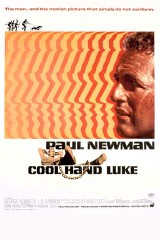
Cool Hand Luke, to me, and I’m not a film historian, but what it feels like to me is it’s in this intersectional point between the glamorization of film and that golden era of Hollywood where everything was meant to look perfect, like all the old Cary Grant movies like His Girl Friday and Arsenic and Old Lace, where everything is supposed to look so nice and everybody’s always impeccably dressed and charming and all that. Cool Hand Luke comes after that, where it’s a more cinema verite realism kind of thing. But also, there are still elements of the older films that you don’t get anymore, like using imagery in a really cool way.
Like, there’s one scene where, to inspire a feeling of tension and stress, there’s just a really slow push in on a whirling fan that just keeps whirling and whirling, and I feel like they don’t do that much anymore. Now they have to really pander to the audience, and make sure that they serve up to you exactly what’s going on, instead of using that kind of stuff. Also, Paul Newman is the f—ing best, and he’s so good in that movie, and it’s just cool, man. It’s just a guy who just won’t get beat by the system, and I really like that. There’s so many layers to that movie. It’s one of the few movies that I make sure I keep downloaded on my iPhone or my iPad, just so that I always have it available.
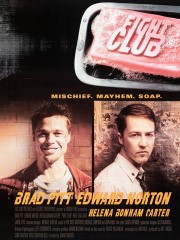
Fight Club came into my life when I was an angsty teenager who wanted to burn down the entire world, much like the movie, and I was just like, “Yeah, you f—ing get ’em.” It just so perfectly captured every bit of teenage or young adult angst that I felt. It also is so funny. Like, I watch that movie and I just howl with laughter, it’s just so sardonic and funny, and also weirdly romantic. It’s a wonderful love story, too. I mean, obviously it’s a love story between two very dysfunctional people, but who’s not dysfunctional in their own ways?
I think the writing is brilliant, I think that the cinematography is incredible, I think that David Fincher absolutely knocked that one out of the park. It’s a movie that I can watch over and over, and every time I catch a new line, or I catch a new shot, and I’m like, “Oh, wow. I never noticed that’s how they did that before, and that’s such a brilliant way to do that.” Yeah, I just think that it perfectly captures every single feeling of frustration and rage that anyone might be feeling at any moment.
You ended up working with David Fincher on The Social Network. How was that for you?
It was incredible. I got to see behind the curtain at the wizard who makes these amazing films, and the effort that goes into making his films. He is a tireless, tireless filmmaker who will not stop until everything is perfect, which is why he is held to such high regard as a filmmaker. He’s one of the best living directors, I think, and when you see his process, you understand why.
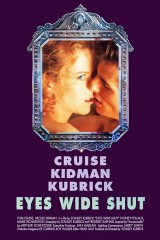
Dude, where do I start? I am a Kubrick fanatic. I think that there may never be another director like Stanley Kubrick. Just the meticulous care that he takes in not only the preparation, but the execution of what he’s doing. The fact that there are Christmas lights hidden in every single shot in Eyes Wide Shut, it’s supposed to be this dreamlike sequence. Just the fact that Tom Cruise’s character wants to have sex so badly, and the only time in the film where it’s actually offered to him and he turns it down, that person later turns out to be HIV positive. There’s just so many little things in that film that are so genius, that can only… none of those things can happen by accident. Those are the manifestations of genius, the manifestations of years and years and years of preparation and work, and you can feel that in every single set up, in every single shot, in every single scene, in every single line of dialogue. You can feel that, and you feel how much Kubrick put into that movie.
Not only that movie, but every movie. I mean, even Barry Lyndon, all of them, all of his movies are incredible, but Eyes Wide Shut to me is this beautiful meditation on what it is to be sort of like a frustrated man. I just think that movie is absolutely incredible. Then you get into, well, what about the conspiracies about it? What about the fact that it’s about this or that? What about the fact that he’s alluding to this or that secret thing, that everyone knows is happening but no one will admit? All that stuff, there’s just so many layers to that film, that every time I watch it, I feel like I just enjoy it for a different reason. And it’s not regarded as Kubrick’s best work, but I absolutely love it, I think it’s a great film.
And look, I just watched 2001 again maybe a month ago, and just sat there marveling again. It’s just like, “Who the hell was this guy? Who gave him the goddamn right to be so good?” But I don’t know, I think that I like the fact that Eyes Wide Shut is like the redheaded stepchild of the Stanley Kubrick films, but it’s amazing. There’s something about the tone of Eyes Wide Shut that, as you’re watching it, it sucks you in, and you really feel like you’re there. Like all of his films. I mean, The Shining wouldn’t be as scary as it is if it didn’t feel like you were actually there in the hotel, but Eyes Wide Shut, there’s just something… It’s a dream. It feels like a dream. It feels like you are watching a dream, and I just think it’s excellent.
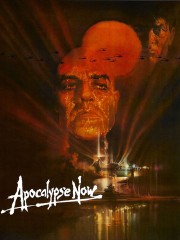
That’s my plane movie. Like, I’ve got it stored on my phone, and if I absolutely just need to just be on a plane, I’ll just put on Apocalypse Now. The mania and craziness that Colonel Kurtz is supposed to represent, and what the jungle in Cambodia is supposed to represent — knowing, by watching documentaries and reading about it, that that mania was not only present, it was prominent on set as they filmed this. Just all of that together. The movie itself is incredible, but the knowing of the making of the film, and what happened when they were making that film, knowing all of that just makes it a much more comprehensive experience.
When Colonel Kurtz talks about the horror, and you know what horror he’s talking about, you just feel like you are let in. You’re gifted an audience into true craziness. Every single character in that movie is bats–t insane, and it’s just a matter of how forward it is. So I mean, even Robert Duvall saying, “There’s nothing like the smell of napalm in the morning,” and then taking a pause from it and going, “You know, one day this war is going to be over.” You can just feel how sad he is about that, and how crazy that is.
And then you move on to the othercharacters, and then when they get to that farthest checkpoint where the bridge keeps getting knocked down, and he’s like, “Who’s in charge?” And the guy’s like, “S–t man, aren’t you?” No one knows what’s going on here. What does he say to the guy, Roach, the guy with the grenade launcher? “Do you know who’s in charge here, son?” And he just looks at him and he goes, “Yeah,” and then turns around and walks away. That’s when you know. You know who’s in charge? Craziness. The only thing that is in charge here is chaos. You can feel it, and I love it.
And Lance, who’s tripping on acid, who’s standing on top of the bunker screaming, looking out, where Charlie is screaming back at him like, “F–k you, GI,” and he’s like, “Lance, get the f–k down!” But that’s the thing: Lance is all of us. That’s what I feel about that movie. He first gets up and he’s just like the good old surfer dude who’s just there and serving his thing, doing what he has to, and in the presence of all of that craziness, he is so affected by it. He’s like the frog slowly boiled in water. To the end, where you get there and he’s ready, he’s primed for the gospel of Kurtz, and he’s just there, and that would be all of us. That’s the experience that so many people had in that war.
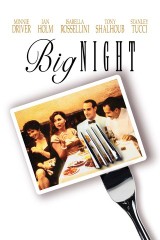
Big Night, the Stanley Tucci movie. Yeah, it feels like a play. It feels like you are watching this beautiful bare bones version of filmmaking. Especially after all of the big event or spectacle films, it just feels so simple and so beautiful, and it’s a heartbreakingly beautiful story about learning what’s important. Also, I love to cook, and cooking is such a big, pivotal part of that movie, and Tony Shalhoub is amazing in it, as is Stanley Tucci. It’s just a great cast, a great film, superbly written, superbly directed, and just nice and simple and bare bones, and I love that about it.
Ryan Fujitani for Rotten Tomatoes: Hotel Mumbai is an intense film. Knowing what the story was behind it, and knowing what you were able to portray in the film, what was the atmosphere like on set? I can’t imagine there was a lot of laughter and joking around when the cameras were turned off.
Armie Hammer: Yeah, you’re not wrong. It was very different. Call My By Your Name was the film I shot right before this, where we were riding bicycles and drinking wine through the Italian countryside, and then I came to this, where we are in smoke-filled hotel hallways being chased by gunmen screaming at us in Urdu, and had no idea what was going on. It was really intense. The filming experience was brutal. It was a lot of time manifesting just fear and anxiety and adrenaline and all that stuff, and that wasn’t the only reason why it was a more serious and somber filming experience, but also because we’re telling the real story of people who went through these terrible traumatic events.
We wanted to be respectful of that. We wanted to acknowledge that, yeah, we had the ability and safety net of calling “cut” if things ever got out of hand for us. The people in the hotel didn’t. So that was something that was always on our mind. So the days were very heavy — they were brutal — and we compensated at night. By the minute we wrapped, we were like, “F–k. Alright guys, let’s go to dinner. We need wine, we need something. Let’s just chill.” And everybody would just hang out with each other at night, and try to just joke, and try to find some levity, and just enjoy being with each other, knowing that the next day was going to be equally intense and equally brutal, and that we were going to have to do it over, and over, and over.
RT: As harrowing an experience shooting the film must have been, would you say that you discovered anything new about yourself in the process, or was there something you discovered about the story you were portraying that surprised you?
Hammer: I wish I could say, “You know what I discovered about myself? That if I was in this situation I would try to X, Y, and Z. And I would try to be the hero in some way, or I would try to do whatever I could to save myself or save some lives.” But ultimately, the thing that I walked away from it realizing was, these situations happen all the time, unfortunately, and we just had something like this happen down in Christchurch.
This s–t happens way too often. And the fact of the matter is, it f–king sucks. There’s no positive thing about this. I didn’t walk away from the movie saying, “Oh, well now I know this about myself.” I walked away from it going, “That f–king sucks. What do we do to make sure that does not happen again? What can we do as a voting populace? What can we do as humanity? What can we do as people to ensure that this s–t stops happening?”
There’s no positive silver lining to things like this. There’s no big lesson to learn. All you walk away from it going is, “That s–t sucks, and I don’t want that to happen anymore.”
Hotel Mumbai opens in select theaters on Friday, March 22.